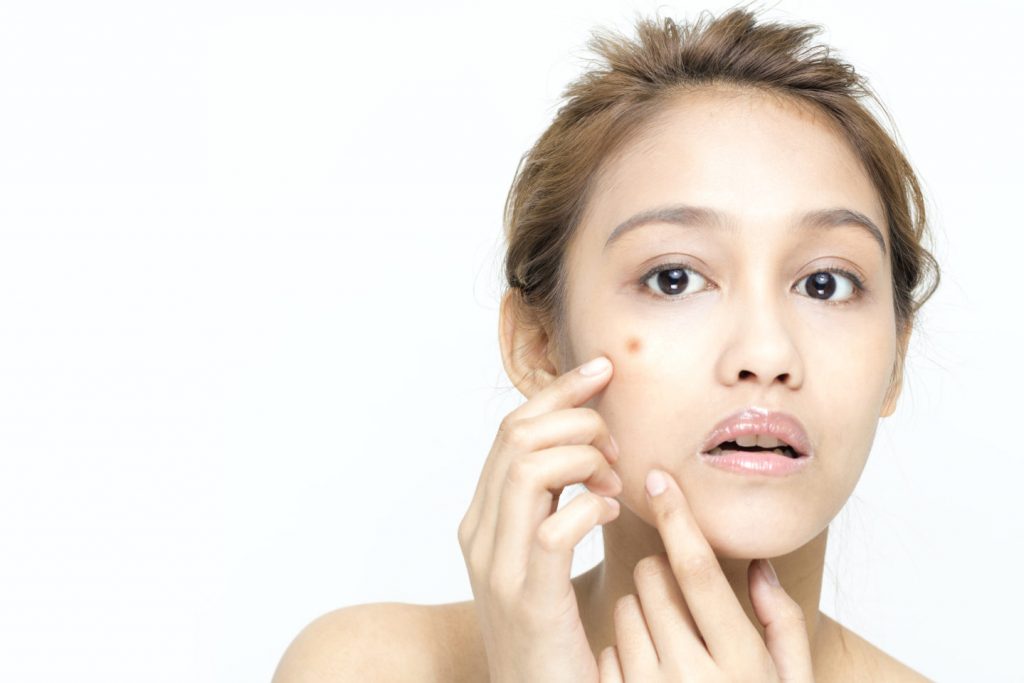WHAT IS ACNE?
Acne vulgaris, consists of the non-inflammatory form, known as comedones & the inflammatory form. The inflammatory form is caused by bacterial infection of the comedones (commonly known as black head & white heads). Comedones are formed by a combination of the dead skin cells with sebum, which block the pores of the skin. Sebum is produced by the oil glands of the skin to moisturize the skin & hair.
Acne rates increase with increased sebum production. The bacteria, Propionibacterium acnes, is normally present on the skin and causes inflammation when it invades on the rich substrate of the comedones. The redness & swelling are due to inflammatory responses from the body to fight the infection. Infection & inflammation ranges from mild to severe.
AT WHAT AGE CAN IT START? IS IT VERY COMMON?
Acne can start at any age. It tends to occur when there is increase sebum production.
Sebum production can increase with heat, hormonal changes, genetic factors, medication, such as cortisols. About 80% of people develop acne at some point between 12-25 years old.
The increase of hormones during puberty causes increase sebum production, which causes higher rates of acne in teenagers. Some people have acne during pregnancy & menstruation due to the hormonal changes resulting to higher sebum production.
 IS IT HEREDITARY?
IS IT HEREDITARY?
Higher rates of sebum production can be hereditary, these individuals tend to have oily skin & are prone to having acne.
HOW CAN MY TEENAGER AVOID DEVELOPING ACNE?
Puberty is a challenging phase. While the hormonal changes cannot be avoided, there are other steps to reduce developing acne. Simple face washing & not picking at comedones help to reduce inflammation & bacterial infection. Avoiding oil based or comedogenic (pore blocking) facial products will help to reduce risk of blocking pores.
WHAT CAN I DO TO ALLEVIATE THE SYMPTOMS?
In addition to the above measures of preventing acne, medications are used to reduce the formation of comedones & treat infection or inflammation of the comedones.
The topical or oral medications are used with the aim of reducing oil production, preventing clog pores & combating the bacteria. Some to the treatment used include topical tretinoin, benzoyl peroxide, antibiotics, oral isotretinoin & hormonal treatment. Depending on the type & severity of acne, single or a combination of medications are used.
HOW LONG DOES IT LAST…..OR IS IT FOREVER?
For most teenagers, acne clears up after puberty, typically by late teens to mid twenties. 
WHAT CAN I DO TO ALLEVIATE THE SCARRING?
Scarring tends to occur in moderate to severe acne, those with deeper lesions. There are a few procedures to treat acne scars, depending on the type & severity of scars, some of the procedures include dermabrasion, laser resurfacing, subcision & excision of scars. The treatment is usually done by a dermatologist and can involve several visits.
Prevention of scarring is a major reason for treating moderate to severe acne. If you have any concerns please visit your Doctor – we are here to help.





































